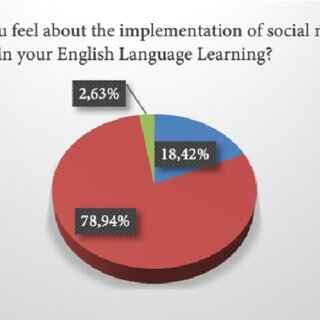A Bachelor of Arts in English Language (BA English) is designed by universities to produce graduates with intellectual capacity, strong analytical and communication skills. However, debates persist about whether AI chat tools such as Grok, Copilot, ChatGPT, and DeepSeek can perform many tasks traditionally handled by English graduates. This article highlights career paths where English graduates will forever remain relevant despite technological innovations.
While it is true that AI models can take on certain responsibilities—such as formal letter writing, text analysis, and speech preparation—there remains a wide range of career opportunities for BA holders in English that AI tools cannot replace.
If anyone has discouraged you by claiming that AI has taken over the roles of those who studied English, here is a list of career paths that remain open to BA holders in English Language:
Creative Writing and Content Creation
Roles: Novelist, copywriter, screenwriter, content strategist
As someone trained in critical and creative writing, you can pursue careers as a novelist, poet, journalist, copywriter, screenwriter, or content strategist. In a previous article, we highlighted that creative writing is one of the areas where AI cannot replace.
While AI can assist writers by improving structure, clarity, and idea generation, the final creative vision remains human-driven. This explains why there are still millions of job openings for scriptwriters, screenwriters, and other writing-related professionals.
A trained English writer brings their expertise into copywriting and screenwriting in ways that reflect originality, personal voice, and emotional depth—qualities AI lacks. Human writers are also more attuned to their environment than AI tools. As such, creative writing and advertising firms still require humans to craft authentic, original content that connects with specific brands and audiences.
Communications and Marketing
Roles: Social media manager, corporate communication officer, public relations officer, strategic communication specialist
While specialized training may be required to become a communication specialist, English graduates are well-equipped for effective communication roles. This field requires persuasive writing, audience awareness, and strategic messaging—areas where humans excel, particularly in navigating the ethical and emotional dimensions of communication.
For example, the Chief Corporate Communication Officer of NNPC Limited, Olufemi Soneye, promptly addressed public concerns about fuel scarcity in Nigeria, reassuring consumers that state-owned refineries were working to ensure product availability. AI would not inherently recognize the likelihood of panic buying unless specifically instructed in a prompt.
While AI can analyze trends and generate posts, humans are needed to craft overarching strategies that deliver effective results.
AI Training
Roles: AI annotator, AI trainer, lebellers, English quality checker
AI developers actively seek BA holders in English to enhance machine output. Since machines are trained and supervised by humans, chatbots like Grok and ChatGPT cannot fully replace the skills of English graduates.
Novel/Book Reviewing
Roles: Freelance writer, consultant, blogger, podcaster, literary critic
English graduates have numerous opportunities in the freelance writing space, including literary criticism, novel reviews, and book analysis. To stand out, you can specialize in niches such as travel writing, cultural criticism, or book reviews.
For instance, Otosirieze Obi-Young, a culture journalist and media consultant, has carved out a niche in novel reviewing by founding Open Country Magazine. He has reviewed hundreds of novels from Africa and beyond. His career offers inspiration to English graduates seeking opportunities in literary criticism. Otosirieze, who earned a BA in English from the University of Nigeria (UNN), has published reviews on notable websites and taught English at Godfrey Okoye University, Enugu. In 2019, he was named among “The 150 Most Interesting Nigerians in Culture.”
If anyone tells you that AI has replaced English grads, researching professionals like Otosirieze will prove otherwise. He is one of many English graduates making waves in the literary world.
Editing and Publishing
Roles: Manuscript editor, field journalist, style editor, editor-in-chief
The publishing industry continues to rely on BA holders in English for manuscript review because human judgment in curating talent and marketing books remains irreplaceable by AI.
Although AI can assist with initial proofreading by catching grammatical and stylistic errors, English Language professionals are still needed to interpret context and intent more effectively than machines.
While media organizations are exploring how AI can be useful in newsrooms, AI will not replace human editors, field reporters in newspaper organizations.
Education and Academia
Roles: Curriculum developer, online English tutor, English teacher, lecturer, English instructor
English graduates are in high demand in South Korea, China, and other countries where English is not the official language but is widely studied.
They are needed as teachers, language researchers in higher institutions, online tutors (e.g., on platforms like NativeCamp), and curriculum developers for Ministries of Education and examination bodies such as West African Examinations Council (WAEC), National Examinations Council (NECO), and Joint Admissions and Matriculation Board (JAMB) need BA Honours in English as examiners and markers.
Imparting knowledge involves empathy, adaptability, and the ability to inspire—qualities AI lacks. BA holders in English can design courses, mentor students, and contribute to academic research, leveraging their deep understanding of language and culture. Adjusting to classroom demands remains a human-centered skill.
Technical Writing and UX Writing
Roles: Technical writer, user experience (UX) writer
English graduates excel in simplifying complex ideas into clear, user-friendly language—essential for writing manuals, software interfaces, and help guides. Although AI is already used to generate drafts, humans are still required to ensure accuracy, coherence, and accessibility, particularly when tailoring content for diverse audiences.
Law, Policy, and Advocacy
Roles: Paralegal, policy analyst, grant writer, nonprofit communications lead
A BA in English equips graduates with strong research, argumentation, and writing skills—key competencies for drafting legal documents, policy proposals, and persuasive campaigns. These fields require human judgment to interpret laws, advocate for causes, and secure funding—areas where AI’s mechanical output falls short.
Objectives of Studying English
Undergraduate students of English are trained to:
- Develop a sound knowledge of the forms and structures of the English language, enhancing their writing skills.
- Effectively use English structures in both oral and written communication, making them valuable across different sectors.
- Engage with diverse literary genres to understand cultural contexts and native-speaker varieties, broadening their knowledge base.
The Future
Job opportunities continue to exist for English graduates because of their ability to think critically, feel deeply, and communicate authentically.
While AI may generate generic articles based on existing ideas, humans remain irreplaceable when it comes to emotional intelligence, ethical reasoning, and cultural insight.
Feature image credit: Researchgate
Join EdubaseNG WhatsApp Channel to get the latest education & student loan tips
Join our Telegram Channel to get the latest news about Student Loans & Education News.
Are you a stakeholder in education? You can become our guest writer. Write to us using our our email address here




